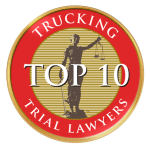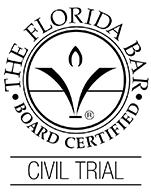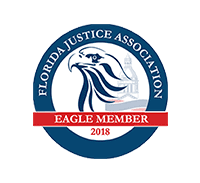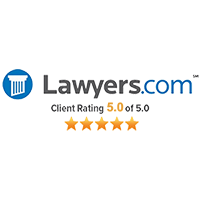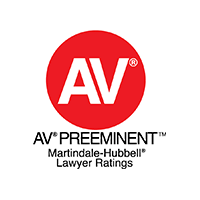Vehicle accidents involving company cars, trucks, or vans present distinct complications beyond those of typical passenger vehicle crashes. When a collision occurs with a commercial vehicle or a personal vehicle being used for business purposes, determining liability becomes significantly more complex due to additional legal principles and parties involved.
We at Dismuke Law have extensive experience navigating the intricate legal landscape of company vehicle accidents throughout Florida. Our team understands the unique challenges these cases present and how to effectively overcome them to secure fair compensation for our clients.
Respondeat Superior and Employer Liability
When employees drive company vehicles, their employers may be held responsible for accidents under the legal doctrine of “respondeat superior,” which means “let the master answer.” This principle creates several complexities:
- Determining whether the employee was acting “within the scope of employment”
- Analyzing whether the trip served a business purpose, even partially
- Evaluating if the employee was performing authorized activities
- Assessing whether the employer benefited from the driver’s actions
- Establishing the employment relationship and level of employer control
The line between work and personal activities isn’t always clear. For example, if an employee runs a personal errand while driving between job sites, determining employer liability requires careful analysis of state law and specific circumstances. Courts often examine factors like whether the employee deviated significantly from their assigned duties and whether the employer could reasonably foresee the employee’s actions.
Independent Contractor Relationships
Many businesses classify drivers as independent contractors rather than employees to limit liability. However, this distinction isn’t always legally valid:
- Courts look beyond labels to examine the actual working relationship
- Factors like control over work methods and equipment ownership matter
- Misclassification of employees as contractors may not shield companies
- Some industries have specific regulations regarding contractor status
- Multiple parties may share liability depending on contractual arrangements
For example, trucking companies sometimes classify drivers as independent contractors while maintaining significant control over their activities. In these cases, courts may determine that an employment relationship exists despite paperwork suggesting otherwise, making the company liable for accidents.
Course and Scope of Employment Questions
One of the most contested issues in company vehicle accident cases involves determining whether the employee was acting within the scope of their employment:
- Commuting to and from work typically falls outside the employment scope
- “Special mission” exceptions may apply when performing specific tasks
- Personal detours and “frolic and detour” concepts affect liability
- Authorized versus unauthorized use of company vehicles
- After-hours driving with permission may still create employer liability
An employee who takes a company vehicle to lunch may or may not be acting within the scope of employment, depending on factors like whether they were entertaining clients, picking up supplies, or simply on a personal break. These nuanced distinctions can make or break a case against an employer.
Insurance Coverage Complications
Company vehicle accidents often involve multiple insurance policies with complex interactions:
- Business auto policies versus personal auto coverage
- Employer general liability or umbrella policies
- Employee’s personal insurance as secondary coverage
- Coverage disputes between multiple insurers
- Exclusions for certain types of business activities
Many personal auto policies exclude coverage when vehicles are used for business purposes. Conversely, business policies may have exclusions for certain types of personal use. Navigating these overlapping and sometimes contradictory coverage issues requires specialized knowledge and experience.
Corporate Vehicle Programs and Policies
Companies with vehicle programs may face liability based on their own policies and procedures:
- Failure to enforce safety rules and driver qualification standards
- Inadequate training or supervision of employee drivers
- Negligent maintenance of company vehicles
- Poor record-keeping regarding driver history or vehicle repairs
- Violations of industry-specific regulations
Evidence that a company knew about an employee’s poor driving record but continued to provide them with a vehicle can establish negligent entrustment claims. Similarly, inadequate maintenance programs or failure to enforce required rest periods can create direct liability separate from respondeat superior principles.
How We Can Help With Your Company Vehicle Accident Case
At Dismuke Law, we understand the complex interplay of legal principles involved in company vehicle accidents. Our experienced attorneys know how to investigate these cases thoroughly, identify all potentially liable parties, and develop effective strategies to overcome the unique challenges these accidents present.
If you’ve been injured in an accident involving a company vehicle in Florida, don’t navigate these complexities alone. Contact Dismuke Law today for dedicated representation from attorneys with proven success handling these specialized cases. Call us at (863) 250-5050 or fill out our contact form to schedule a free consultation about your potential claim.

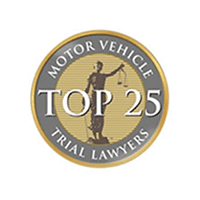

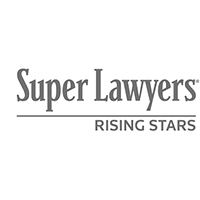
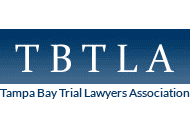

![cftla-member[2]](https://www.1800askdave.com/wp-content/uploads/2022/03/cftla-member2.png)
![cftla-member[3]](https://www.1800askdave.com/wp-content/uploads/2022/03/cftla-member3.png)
